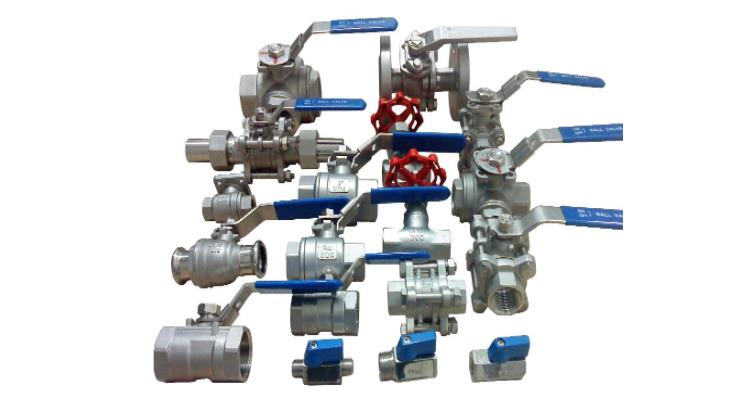how many types of Ball valves and What are their Uses?
There are four general body styles of ball valves: single body, split body, top entry, and welded. There are four general types of ball valves: full port, standard port, reduced port, and v port.
A full port ball valve has an oversized ball so that the hole in the ball is the same size as the pipeline resulting in lower friction loss. Flow is unrestricted, but the valve is larger.
A standard port ball valve is usually less expensive, but has a smaller ball and a correspondingly smaller port. Flow through this valve is one pipe size smaller than the valve’s pipe size resulting in slightly restricted flow. In reduced port ball valves, flow through the valve is one pipe sizes smaller than the valve’s pipe size resulting in restricted flow.
A v port ball valve has either a ‘v’ shaped ball or a ‘v’ shaped seat. This allows the orifice to be opened and closed in a more controlled manner with a closer to linear flow characteristic. When the valve is in the closed position and opening is commenced the small end of the ‘v’ is opened first allowing stable flow control during this stage. This type of design requires a generally more robust construction due to higher velocities of the fluids, which would quickly damage a standard valve.
A trunnion ball valve has a mechanical means of anchoring the ball at the top and the bottom, this design is usually applied on larger and higher pressure valves(say 4 inch and above 600 psi and above)
Manually operated ball valves can be closed quickly and thus there is a danger of water hammer. Some ball valves are equipped with an actuator that may be pneumatically or motor (electric) operated. These valves can be used either for on/off or flow control. A pneumatic flow control valve is also equipped with a positioner which transforms the control signal into actuator position and valve opening accordingly.

Ball valves are essential in many industrial and commercial applications due to their ability to precisely control liquids and gases flowing through pipelines with minimal effort required on behalf of operators. Whether you need one for your business’s plumbing system or your home’s HVAC unit, understanding how this type of valve works can help ensure you purchase one that meets all your needs requirements while still being cost-effective. With that being said, if you’re ever unsure about whether standard port ball valves are suitable for your application –you should consult with an experienced professional who can give you more information so that you make an informed decision based on your specific situation!


